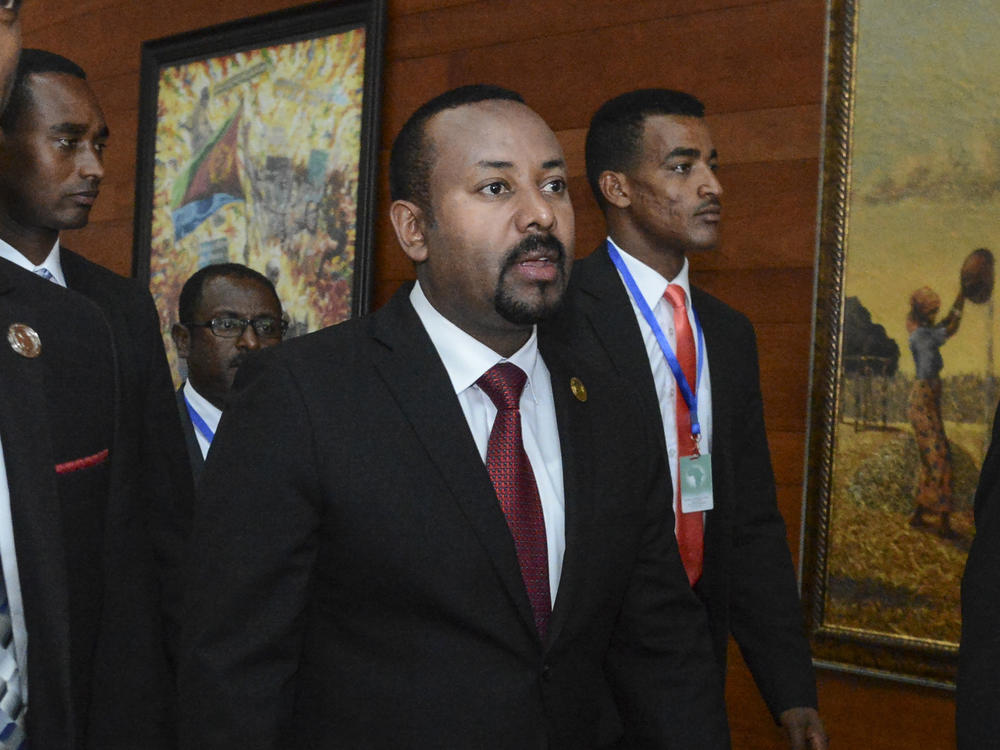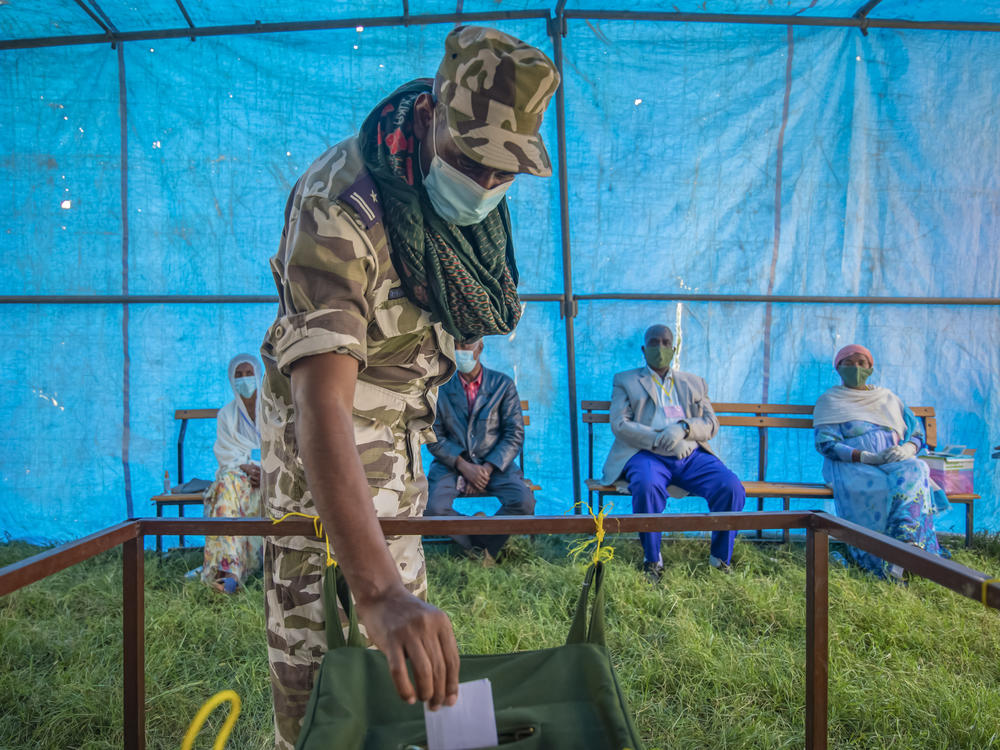Section Branding
Header Content
Ethiopia Edges Toward Civil War As Federal Government Orders Attack On Tigray Region
Primary Content
As the world's attention remained on the American elections, Ethiopia seemed on the brink of war.
Nobel Peace Prize Laureate and Prime Minister Abiy Ahmed ordered an attack against the Tigray People's Liberation Front (TPLF), the state government in charge of Ethiopia's northernmost region. Abiy accused the TPLF of attacking a federal military base in the overnight hours on Tuesday.
"The last red line has been crossed with this morning's attacks and the Federal government is therefore forced into a military confrontation," a statement issued by his office read. In a statement on state television, Abiy said that the initial attack by Tigrayan forces had resulted in "many martyrs, injuries and property damage."
Phone lines and the Internet were interrupted in Tigray, so it was not possible to independently assess any damage or casualties. Abiy's government also announced a six month state of emergency in the Tigray region.
On a television station run by the Tigrayan government, the TPLF looped a recorded statement, announcing the closure of their airspace and promising proportionate retaliatory attacks against Ethiopian forces.
This is a major escalation between the state and federal government in Ethiopia. The TPLF controls the most powerful regional force in the country. They are well-armed and well trained and analysts fear that if this leads to a full-scale war between the TPLF and Ethiopia's federal government, it could not only destabilize the already fragile Horn of Africa, but lead to humanitarian disaster in the country of more than 100 million people.
"Ethiopia [is] an anchor state in the Horn," analyst Rashid Abdi wrote on Twitter. "[This] implosion [is] bound to have devastating consequences across the entire sub-region."
Abdi has warned that a war in Ethiopia could open the floodgates for the Islamist group al-Shabab in neighboring Somalia. It could also further destabilize Sudan, whose transitional government is trying to keep the country together, and South Sudan, which has been trying to maintain a peace deal supported by Ethiopia.
Ethiopia's internal conflict, however, is a long time coming. The TPLF was thrown out of power when a popular uprising led to the dismantling of the ruling coalition the TPLF had built in Ethiopia. Abiy took power in April of 2018 and has since accused the former regime of trying to destabilize the country, in part, by fomenting ethnic divisions and violence.
The TPLF has given refuge to former government officials wanted by the new regime and in September, they held regional elections that had been declared unconstitutional by the federal government.
On Monday, Debretsion Gebremichael, the president of the Tigray region, said the Ethiopian government was plotting a war against them in retaliation for holding elections.
This afternoon, the United States Embassy in Addis Ababa urged "an immediate de-escalation of the current situation in Tigray."
"We strongly encourage all parties to prioritize civilians' safety and security," the statement read.
Copyright 2020 NPR. To see more, visit https://www.npr.org.


